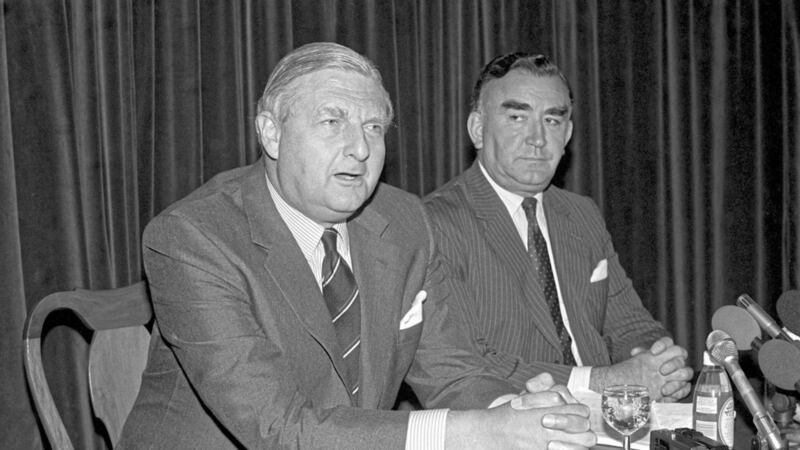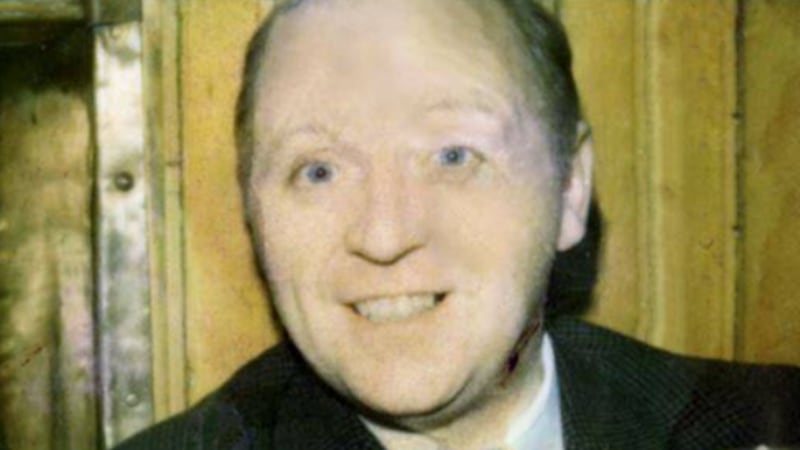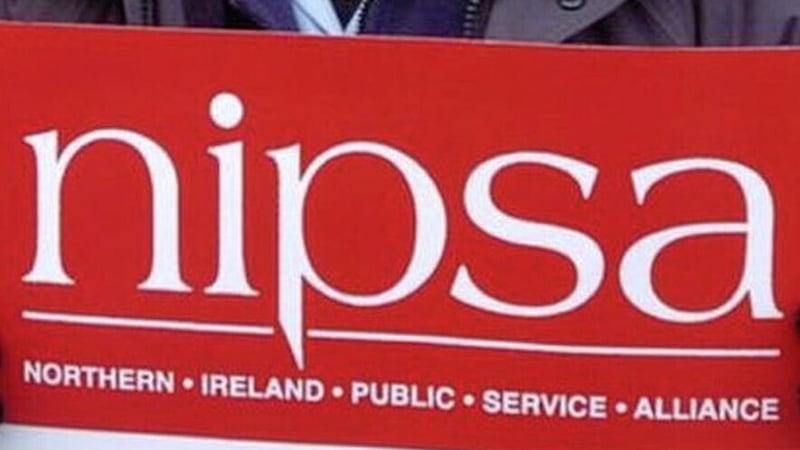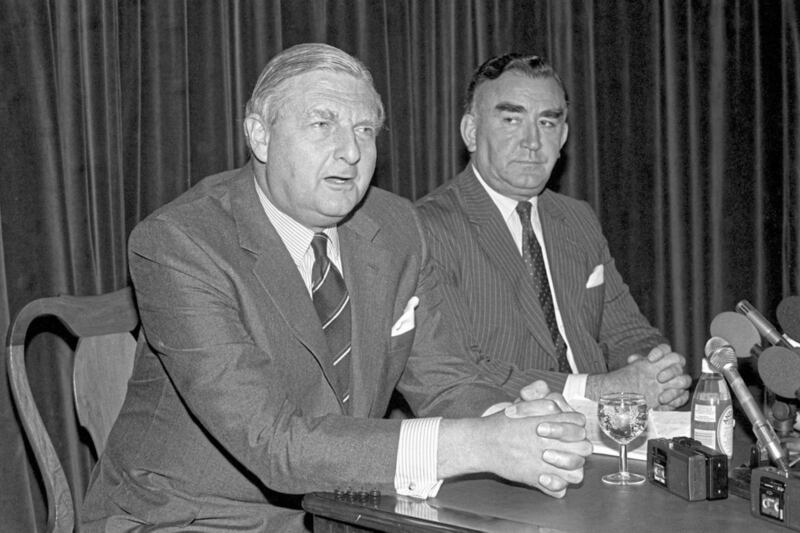Secretary of state Patrick Mayhew was remarkably optimistic about the 1994 IRA ceasefire and the possibility of a permanent peace according to a private letter written by him in files declassified today in Belfast.
His assessment of the IRA cessation is contained in a letter written by him to Sir Ninian Stephen, a former governor-general of Australia who had chaired inter-party talks at Stormont in the early 1990s.
In the letter dated December 29, 1994, Mayhew informed Stephen: "Peace has broken out, I hope permanently, and for the first time in twenty- five years we are harbouring more than a lingering hope the violence is over for good. The atmosphere has been transformed."
"However," Mr Mayhew added, "all the paramilitary structures (including armaments) remain in place and we are now in a tricky phase until we establish whether the republican movement and loyalists are definitely committed to democratic politics."
Read More
Fraudulent voting common in 1990s but main culprits were not Sinn Féin
Irish diplomat angered by withdrawal of RUC protection
David Ervine 'impressive' in post-ceasefire talks
On the IRA ceasefire announced on August 31, 1994, the Conservative minister noted: "Much ink has been spilt trying to decipher why they chose that precise moment but, in my own view, it was a direct result of the pressure exerted by the Joint Declaration [signed by Prime Minister Major and the Taoiseach, Albert Reynolds, on 15 December 1993].
"...It brought home to them that, in light of the universal support for the declaration, the time had come for them either to put aside the gun and bomb or face increasing isolation. John Hume and Albert Reynolds have also exerted considerable influence."
Mr Mayhew noted that, since the ceasefire, the IRA had been responsible for the tragic killing of a postal worker [Frank Kerr] in Newry during a robbery.
It was, he added, "desperate for finance".
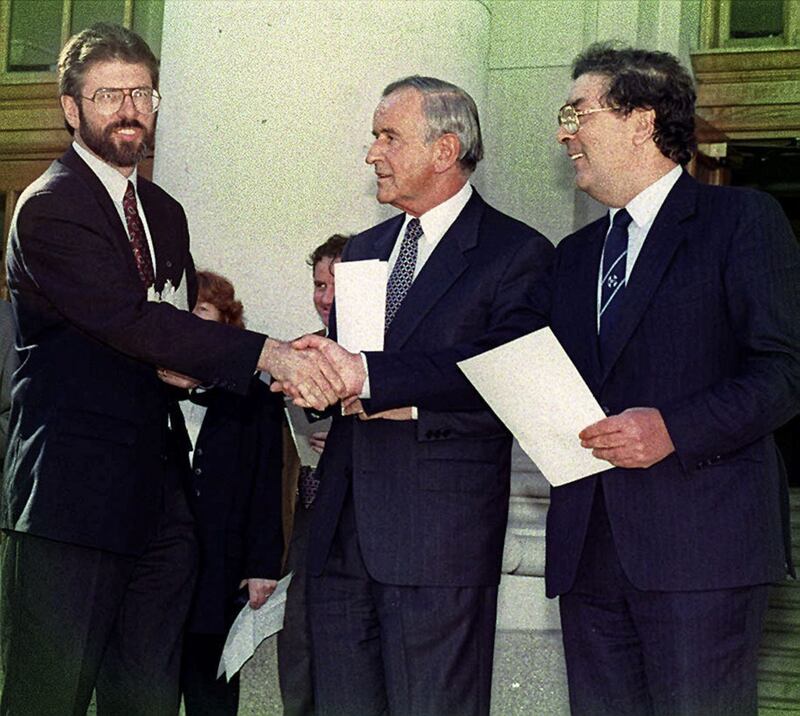
The British government's main preoccupation, he went on, was to "satisfy ourselves that, by their words and deeds, Sinn Féin/IRA have given up violence for good".
In his view the jury were still out and "everything remains to be played for in the New Year".
Read More
- NIO anger at Albert Reynolds' public handshake with Gerry Adams
- Tánaiste critical of British response to IRA ceasefire
He acknowledged that there had been "some rumblings about the ceasefire" in the republican movement and also among loyalists but he felt that the republicans' overtures to the Irish and US governments and the SDLP offered hope of permanent peace.
"The republican leadership having intentionally built bridges with the Irish and American governments and the SDLP, there are some grounds for optimism that the peace can be made to last if we can circumvent the obstacle of the weaponry."
Read More
- Martin McGuinness accused NIO of 'brass neck' in branding IRA arms the stumbling block to talks
- Historic talks between British government and Martin McGuinness revealed
